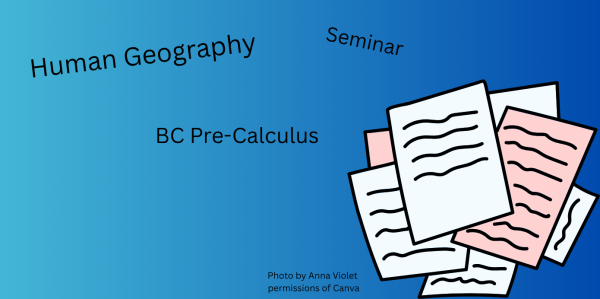How You Can Prepare for Your Midterms
These tips can help you brace yourself for what might be your most dreaded test yet.
Winter break is over and the first semester is over in a couple of weeks, which, as bad as it seems to think about, means your midterm exams will be happening soon as well. While it’s likely that you will only have a midterm in a select few if not only one of your classes, just having one still is another huge burden on top of your schedule. Due to the significant effect of the midterm on your final grade in the class, midterms are definitely one of the most important tests that happen throughout the year, making preparing for it all the more stressful. If you aren’t sure where to start, here are some tips that will help you make sure that you are ready for when the dreaded test comes.
As with all the largely cumulative exams, midterms test on a very wide range of curriculum, spanning from the beginning of the year through the second semester. While that may seem like way too much to test on, it also means that the exam can only test you on so much. It’s likely that the questions will mostly focus on the fundamental concepts that you’ve learned all year rather than a very specific part of a unit. That doesn’t mean that you shouldn’t study the small areas of the curriculum, but if you don’t have much time to prepare, then it’s probably a better idea to concentrate on the most important things you learned in each unit/topic. A good strategy to use is to briefly go over each unit and find what concepts or strategies appear the most often. If your teacher does not provide an outline for the unit, this is a good way to figure out what you need to know for the exam. Once you know what you need to know, study those concepts and try related practice problems. In addition to helping hone your skills in certain areas, doing practice problems on multiple units will help refresh your mind to what a question that tests a certain concept looks like, so you know exactly what you should do if you see a similar question on the exam.
Seeing that the end of the quarter and semester are approaching, you probably don’t have as much time as you want to study for your midterm. Don’t try to speed through every unit and study everything with only a couple of days left. Rather, look over all the topics and units and highlight those that you aren’t confident about. So, if you end up waiting too long to get through all the curriculum, concentrate on specific areas that you need to work on the most, it will at least allow you to retain some of the content. Even if you do have a solid amount of time before the test, it’s still a good idea to allot more of your time to the more unfamiliar concepts as you still want to maximize your efficiency of studying.
Another crucial aspect about your preparation should be how you attack the test. Know the structure of your midterm: how many questions there are and what type they are, how much time you will have, etc. Knowing these things will allow you to develop a test strategy which will make sure you aren’t overwhelmed when you see the test. For example, if you know that the test will be primarily multiple choice, you can learn how to automatically rule out certain answers when a question tests a specific topic. Additionally, a multiple choice test means that you won’t be graded based on the work you show. So if a certain free response question requires you to write out specific steps, but your midterm is all multiple choice, you can just focus on finding the right answer as fast as possible.
The ugly truth is that midterms are one of the most significant tests that you take throughout the school year, and you should plan accordingly. And with the fact that they cover everything that you’ve learned so far, it’s clear that midterms aren’t your average exam. However, that doesn’t mean they’re impossible to study for. With the wide range of topics that the exam is expected to test, the ability to test on very specific concepts is lost. The most important thing is to know the fundamental takeaways from every unit and the structure of the test itself. Just having knowledge of these two will make you considerably more prepared for the midterm. Good Luck!
Hi, my name is Max and I'm a senior here at Oakton. This year will be my second year on the Outlook and my second year as a staff writer as well. I love...







